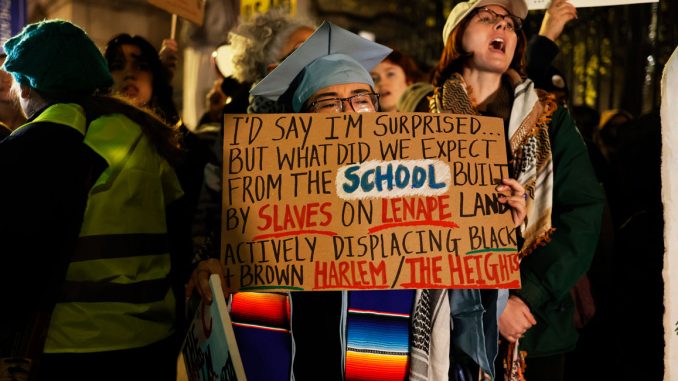
I have written in the past about the similarities of the stress and tensions in our country today to the stress and tensions that were taking place in the years before the Civil War.
A free country will always have debate and differences of opinion. But that debate becomes dangerous and destructive when the differences strike at the core premises that define the very existence of the nation. When we can no longer agree about who we are, what we stand for, and why we exist, our very existence comes into question.
As Abraham Lincoln said, “A house divided against itself cannot stand.” Then the basic premises of our free country were challenged by the existence of slavery.
The country is divided today by those who see injustice as a problem to be defined and solved by politics and those who continue to see injustice as evil defined by Scripture and dealt with through repentance and self-correction.
When the issue of slavery tore apart our nation, most Americans were church-going citizens. The dividing line then was between those who saw slavery as a sin and those who did not.
As Lincoln said in his second inaugural address, delivered as the Civil War raged, “Both read the same Bible and pray to the same God and each invokes His aid against the other.”
But today the division is between those for whom religion is relevant and those for whom it is not. The latter, overwhelmingly, are on the political Left.
The recent Wall Street Journal/NORC polling on national values shows the picture clearly.
Of those who say religion is personally “very important,” 27% of Democrats say yes and 53% of Republicans say yes.
Of those who say patriotism is “very important,” 23% of Democrats and 59% of Republicans say yes.
Of those who agree that schools and universities have gone “too far … taking steps to promote racial and ethnic diversity,” 6% of Democrats agree and 55% of Republicans agree.
Of those who agree that “Businesses taking steps to promote racial and ethnic diversity” have gone “too far,” 7% of Democrats agree and 52% of Republicans agree.
Many are now shocked to see how politicized our universities have become. But the data shows that this is not a problem limited to our universities; it reflects broader, deep changes in our society.
Injustice has become a problem relegated to politics as religion has increasingly been purged from our society.
DEI—diversity, equity, inclusion—is a tool designed by secularists, who produce their own definition of injustice and then design their own quantitative tool to solve the problem they have themselves defined.
This is one slice of ideology that is a subset of broader godless movements in social engineering—communism and socialism.
President Ronald Reagan gave one the nation’s great speeches in March 1983 to the National Association of Evangelicals in which he called the Soviet Union an “evil empire.”
Reagan said then, “But we must never forget that no government schemes are going to perfect man. We know that living in this world means dealing with what philosophers would call the phenomenology of evil or, as theologians would put it, the doctrine of sin.”
Speaking about the then-Soviet Union, Reagan said, “Let us be aware that while they preach the supremacy of the State, declare its omnipotence over individual man … they are the focus of evil in the modern world.”
With the surge to the left in our country, and the purge of the influence of religion, we have produced our own “government schemes,” pretending they will “perfect man” and solve our social challenges.
The result is the ongoing expansion of government and a burden of national debt and government spending that is crushing us.
Reagan quoted William Penn saying, “If we will not be governed by God, we must be governed by tyrants.”
This is where we are today.
COPYRIGHT 2023 CREATORS.COM
The Daily Signal publishes a variety of perspectives. Nothing written here is to be construed as representing the views of The Heritage Foundation.
Have an opinion about this article? To sound off, please email letters@DailySignal.com and we’ll consider publishing your edited remarks in our regular “We Hear You” feature. Remember to include the URL or headline of the article plus your name and town and/or state.

